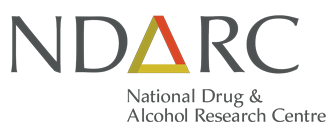
We have developed a multidisciplinary global consortium of researchers who can provide independent high-quality evidence regarding the scale of illicit drug use, harms, access to services at country, regional and global levels, and build capacity for better data in these areas.
The work by this group includes a range of reviews and synthesis of evidence, including:
Systematic review of country-level, regional and global estimates of prevalence of injecting drug use; sociodemographic and risk characteristics of people who inject drugs; and HIV, HCV and HBV prevalence amongst people who inject drugs
- To access the journal article please visit The Lancet.
- Interactive dashboards containing data from this study are available on the NDARC website.
Systematic review of country-level, regional and global estimates of coverage of needle-syringe programme, opioid substitution therapy, HIV testing, anti-retroviral therapy, and condom programmes for people who inject drugs.
- To access the journal article please visit The Lancet.
- Interactive dashboards containing data from this study are available on the NDARC website.
Project Collaborators External
- Dr Janni Leung University of Queensland
- A/Prof Jason Grebely Kirby Institute
- Prof Matt Hickman University of Bristol
- Prof Peter Vickerman University of Bristol
- Prof John Strang King's College London
- Prof Michael Lynskey King's College London
- Prof John Marsden King's College London
- Dr Lindsey Hines King's College London
- Mr Jack Stone University of Bristol
- Mr Adam Trickey University of Bristol
- Mr Evan Cunningham Kirby institute
- Prof Wayne Hall University of Queensland
- Mr Konstantin Dumchev Ukrainian Institute on Public Health Policy
- Mr Paul Griffiths EMCDDA
- Prof Jurgen Rehm CAMH
Project Supporters
Open Society Foundations; The Global Fund; WHO; UNAIDS; United Nations Office on Drugs and Crime; Australian National Drug and Alcohol Research Centre, UNSW Sydney
Researchers from the Consortium have been involved in initiatives that have had major impacts at a global, regional and national level. This includes key researchers involved with the Global Burden of Disease project, the WHO’s World Mental Health Survey. This work has informed global, regional and country-level policies.
In September 2015 the UN General Assembly adopted 17 Sustainable Development Goals (SDGs) under the 2030 Agenda for Sustainable Development. These included multiple targets relevant to people who use illicit drugs. The Agenda emphasizes the need for transparent, critical monitoring of progress, creating a need for independent scientific advice.
This Consortium will function to fill this gap, drawing together researchers who have established and collaborated on large-scale global health initiatives to provide independent scientific advice for improved epidemiological data, advances in modelling estimates, and work on indicators for measuring SDG progress.
Our aim is to maximise independent high-quality evidence regarding the scale of illicit drug use, harms, access to services at country, regional and global levels, and build capacity for better data in these areas.
Three major functions:
- Advice regarding data and methodological developments related to estimates of alcohol and drug use and intervention and treatment coverage
- Work to improve estimates of drug-attributable burden
- Develop links with leading research institutions in other countries, with a focus on academic units in less resourced countries to improve data, and generation of new data
Design and Method
Two global reviews are currently in progress, comprising:
- Systematic review of country-level, regional and global estimates of prevalence of injecting drug use among people aged 15-64 years; sociodemographic and risk characteristics of people who inject drugs; and HIV and viral prevalence amongst people who inject drugs.
- Systematic review of country-level, regional and global estimates of coverage of needle-syringe programme, opioid substitution therapy, HIV testing, anti-retroviral therapy, and condom programmes for people who inject drugs.
Please email any queries regarding these projects, or any updated city/sub-national/country level estimates of the above to global.reviews@unsw.edu.au










